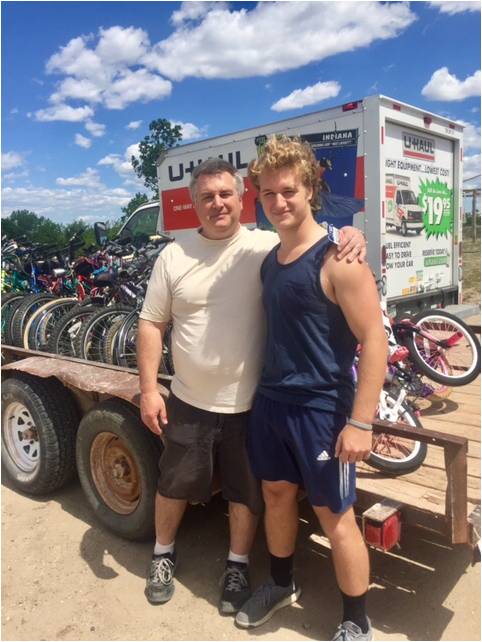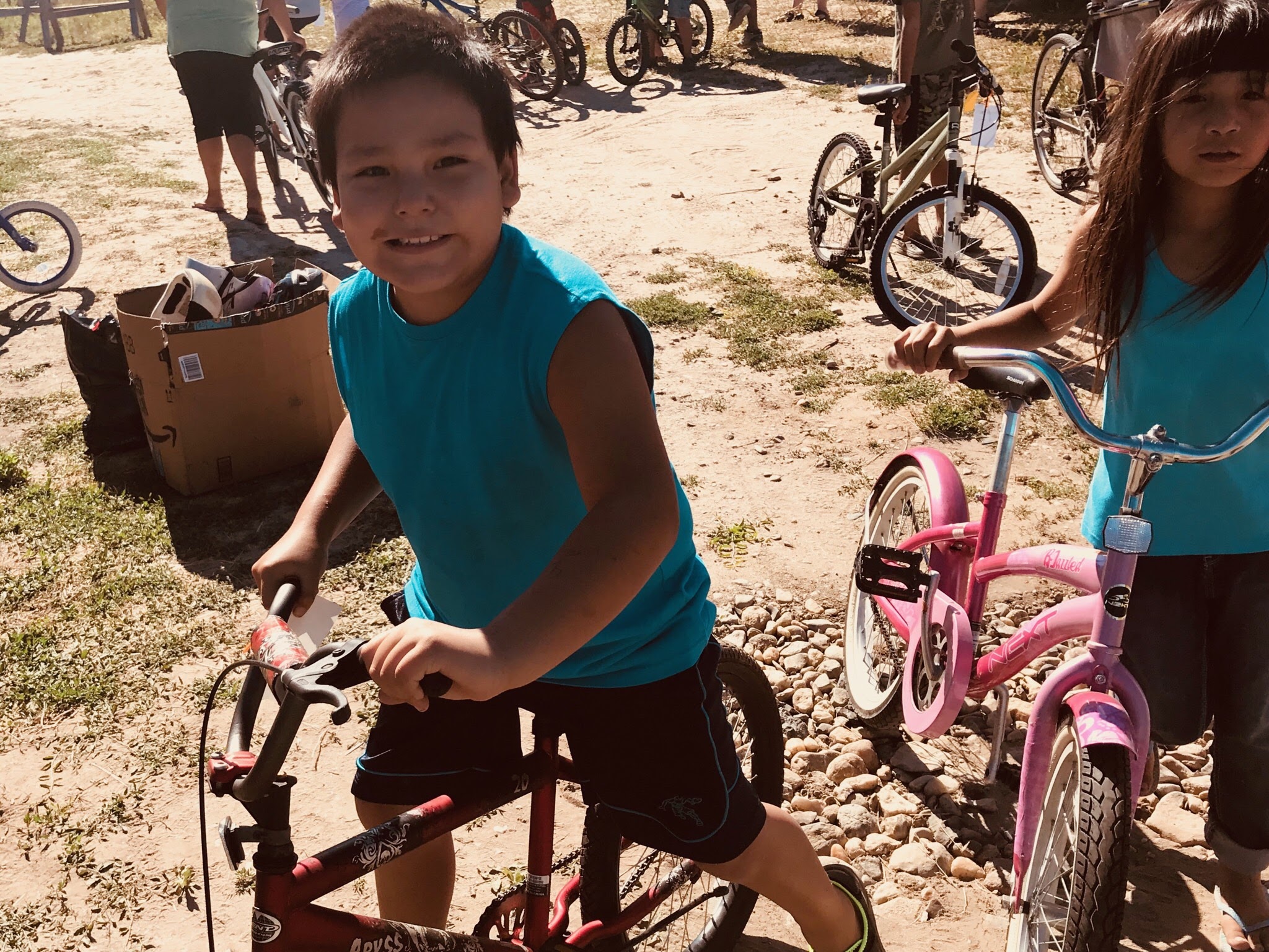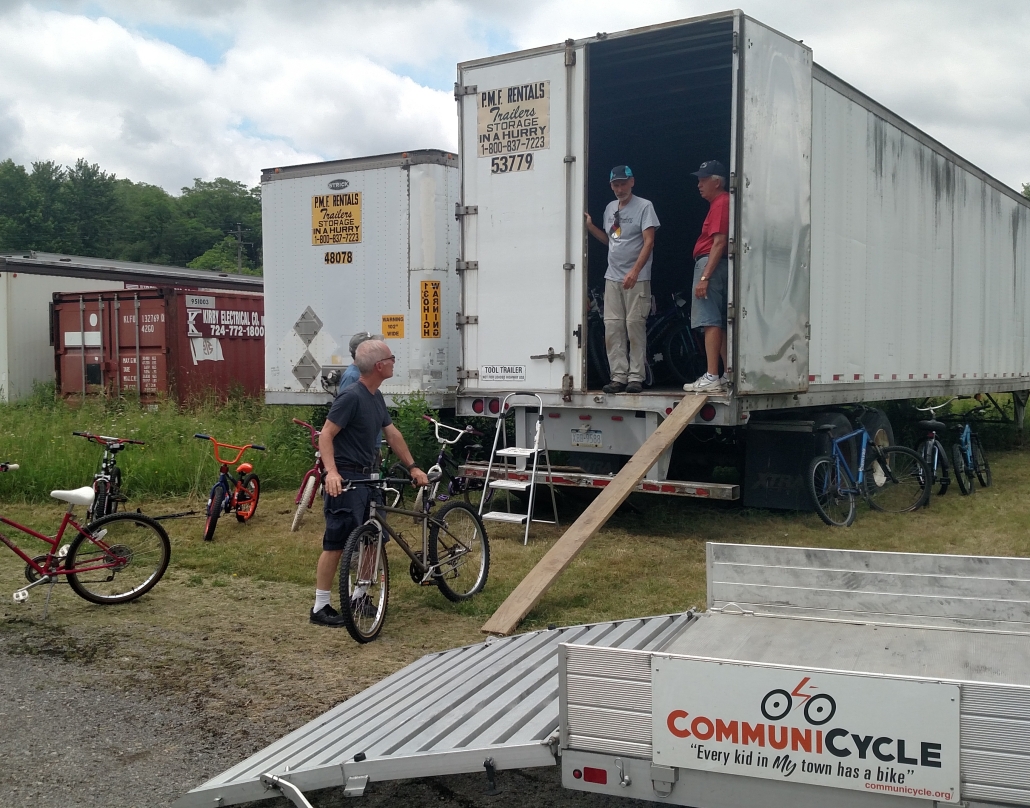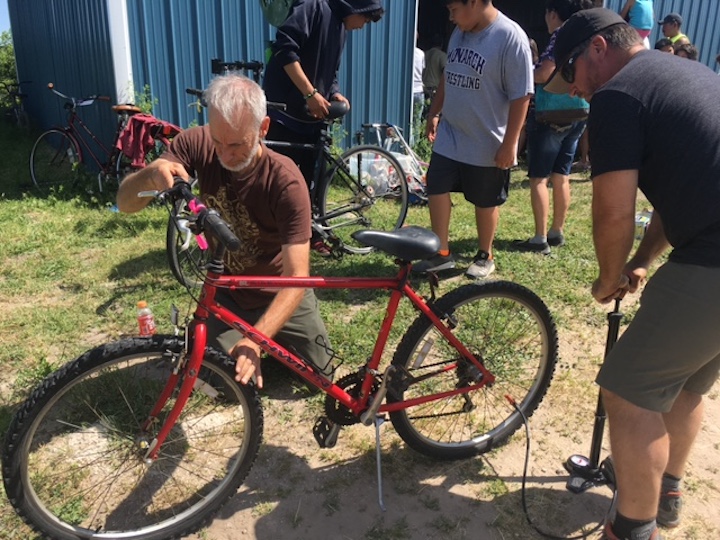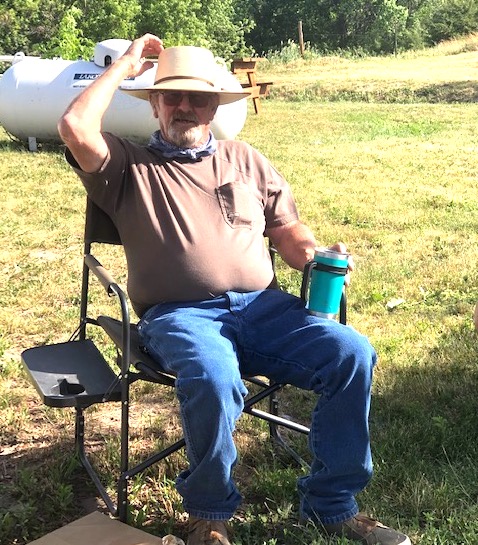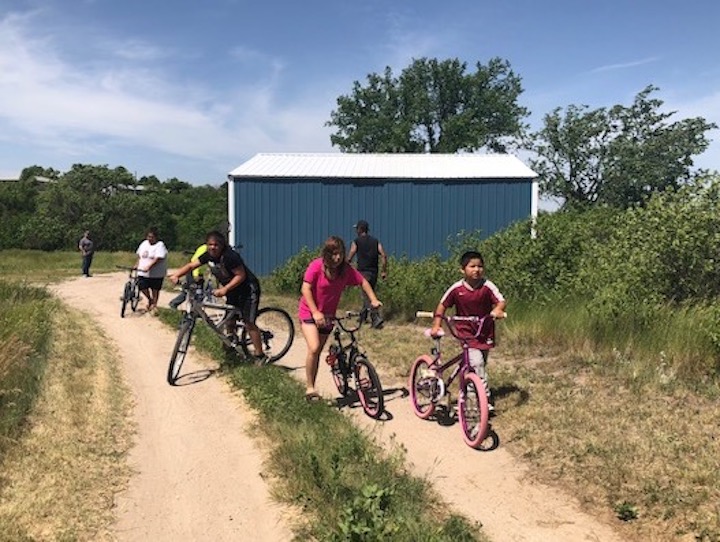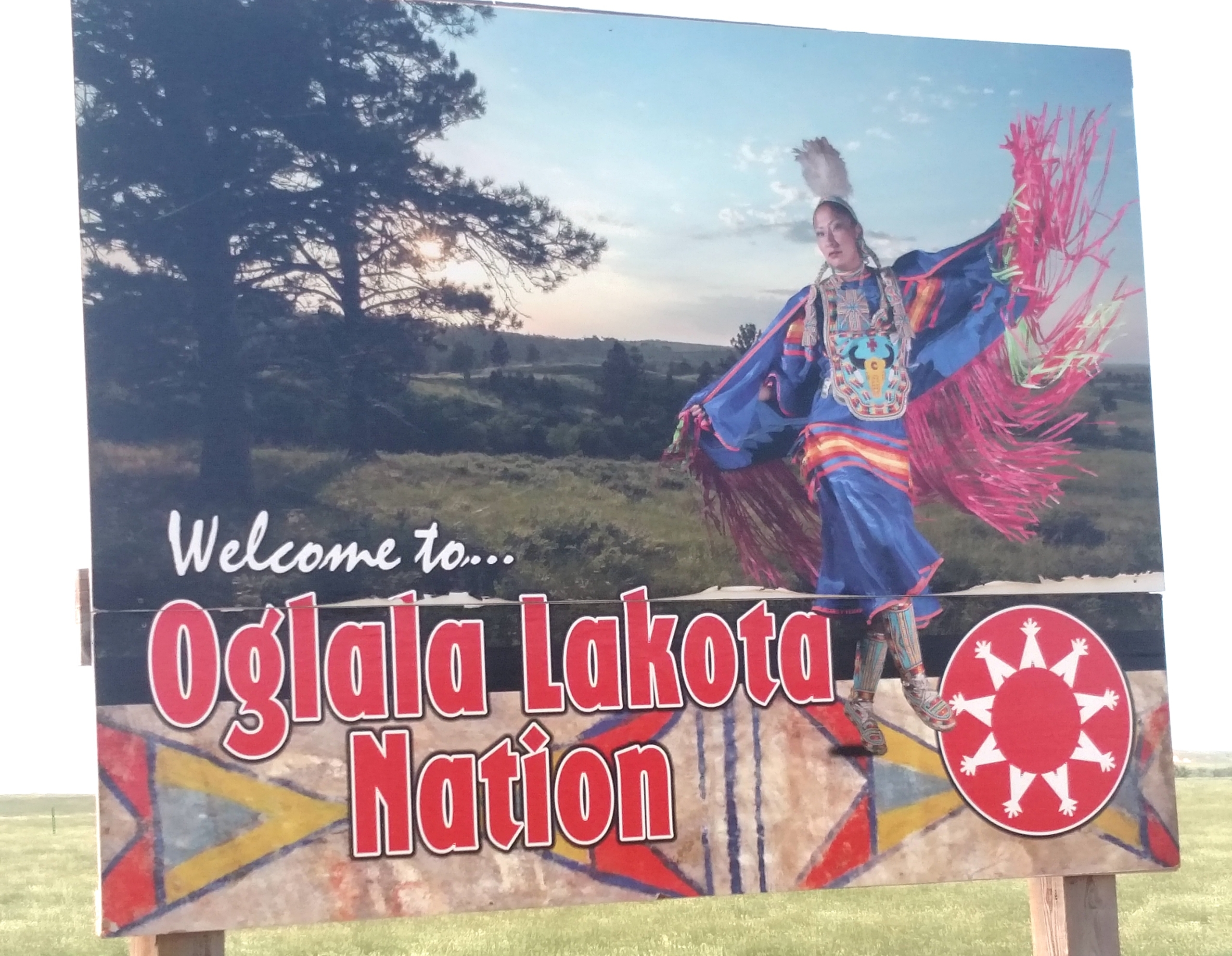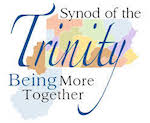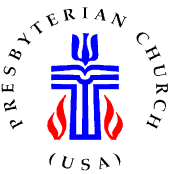News
A VISION BECOMES A MISSION
Posted March 28, 2023
On Wednesday, June 21 of 2017, Glen Sanders and his 18 year-old son, Cordell, packed up 112 bicycles in two 10 foot U-Hauls. Rich Gigliotti and Adam Swarts, also of Calvin Church in Zelienople, joined them as they set off on a 1300 mile trip to South Dakota. Twenty hours later they arrived in the village of Wanblee located on the Pine Ridge Reservation. Ten years after their first trip to South Dakota, Glen and Cordell were finally seeing the culmination of a vision that started with a car that refused to start.
Glen and Cordell Sanders during their first distribution day.
Back in 2007, this father and son had set out on a bonding vacation that had no plan except to see Mount Rushmore and Crazy Horse Monument in South Dakota. When they arrived, they set up camp and played the tourist by panning for gold at a gold mine. As they were ready to head back to their campsite, the car wouldn’t start. Thankfully, Glen was able to make contact with an old college friend, Adrianne, who met them at the gold mine and drove them to Rapid City where the car had been towed for repair.
Adrianne had been married to a Lakota man who grew up on Pine Ridge Reservation. Adrianne was running a nonprofit that provides Christmas gifts and meals to the Lakota people. Glen was eager to learn more. Days later, after the car was finally repaired, Glen and Cordell needed to return home. Before they left Glen asked if there was anything more that the Lakota people needed that they couldn’t provide through the nonprofit. He was told they need bicycles. Adults can use bikes to travel to and from the ranches where they are employed. Without transportation, residents of the reservation have a hard time staying employed and the nearest convenient store, offering basic necessities, is a mile away. Also, bikes provide healthy recreation, socialization and enjoyment for children.
Lakota children receiving bikes on a distribution day.
During the return trip, Glen had a lot of time to think about all he had learned and that unique need for bicycles. Over the years whenever his son outgrew a bike, they would take a walk on garbage night. There was no problem finding a bike Cordell liked within two blocks of their home. Glen would make the necessary repairs—a new inner tube or brake pads—and Cordell had a new bike. Glen thought if we throw away so many bikes in our community, why not collect them and take them out to the reservation? Glen called his friend, Adrianne, in South Dakota and was given the name of Ari Rooks. He and Ari started a conversation that would put the wheels into motion but with many obstacles yet to overcome.
Glen figured this would be a great project for the boys at George Junior Republic in Grove City, the school where he is on staff as fine arts director. And certainly his church, Calvin, would see it as a great opportunity for mission. He pitched his idea and both groups agreed it was an interesting project, but politely declined getting involved. Glen had to tell Ari that there would be no bikes arriving anytime soon.
Then Glen discovered that Robert Stubenbort, a member at Calvin, was involved in raising money to fabricate special needs bikes. Glen eagerly shared his idea of providing bikes for Pine Ridge Reservations with Robert. It was quite a while later that Robert got back to Glen saying that he felt Calvin Church should reconsider taking up this cause. Glen again approached George Junior Republic and they agreed to get involved as long as the activity occurred off campus.
Glen had created a piece of artwork for the rails to trails project in Greenville, PA. Glen’s contact person was Fred Kiser who is a member of the Mercer Bike Association. Fred invited Glen to pitch his idea to the association and he got a positive response. They would help support the repairing and delivering of bikes to the Lakota people. All they needed was a place to repair and store the bikes. Glen approached a new business, Sweet Jeanie’s, in Grove City and was given permission to use their very large basement.
Finding places to store the bikes, before and after repair work, is an ongoing challenge.
Just about this time, Calvin Church was starting to collect bikes, so the new space was greatly needed. Gary Semrac, also a member of the Mercer Bike Association, became the master bike wrench—the name given to bike mechanics. Glen began bringing young men from George Junior Republic to work on the bikes.
So in May of 2016, Glen was finally able to share the good news with Ari Rooks—bikes would be arriving at Pine Ridge Reservation in the summer of 2017. Glen would see his grown son passing out bikes to children and families on the reservation. And members from Calvin Church would make the trip with them.
Calvin Church members begin loading bikes for a trip to South Dakota. This container served for storage of the repaired bikes.
Since those first bikes were delivered, there have been five more trips involving four to 12 participants each trip. Glen has made the trip each time with about 20 different individuals making the trip. All together about 600 refurbished bikes have been delivered to the reservation. And the project got a name—Without Reservations. Over the years the work of Without Reservations has evolved with more and more individuals playing important roles and Calvin Church passionately supporting the mission.
Last year, in addition to delivering the bikes, tools and spare parts were brought along. Two days of workshops were held to repair existing bikes on the reservation.
During a distribution day, David Wuchina and Adam Swarts of Calvin Church prepare a bike for its new owner.
Ron Cotner, who has lived on and served the reservation for fifteen years, has become the contact person for Without Reservations. Ron not only helps with the bikes but also helps the Lakota people practice their culture. The Lakota know Ron’s place—5 acres of property which was given to him near the village of Wanblee—is a safe place for them. It has become the place to stay for those making the trips to the reservation. On each trip Ron’s barn has been temporarily converted into a distribution hub.
Ron Cotner has opened his property to Without Reservations.
After being unloaded, in preparation for distribution, the bikes are organized by size in Ron’s barn.
Lakota children and their new bikes with Ron’s barn in the background.
Since Wanblee has become the central location for the work of Without Reservations, plans are underway for building a repair shop on Ron’s property. The building would go a long way in providing for the needs of bike repairs between visits, especially since plans are also underway to train individuals on the reservation in bike repair. The hope is that a volunteer group from Texas will construct the repair shop this summer. It is Without Reservations’s goal to raise the necessary funds for the building materials and have them in place in time for the group’s arrival.
The mission of Without Reservations continues to evolve as they hope to expand their reach to other parts of the reservation. The other side of Without Reservations’ mission, beyond getting the people of western PA involved in fixing bikes to take to South Dakota, is to provide bikes for communities here at home. By teaching bike repair, more families and children can enjoy biking together.
Glen explains, “Repairing bikes in Pennsylvania and transporting them to South Dakota doesn’t seem cost effective, and it really isn’t. This mission is more than bikes. It is about healing relationships between cultures. It’s about healing relationships in communities in western Pennsylvania. Providing a bike that takes hours to rebuild teaches new skills to the volunteers. It builds relationships between those volunteers and it provides an opportunity to show love and create hope for everyone that gets involved. The cost is worth it.”
PINE RIDGE RESERVATION
Pine Ridge Reservation in South Dakota is one of the largest reservations, in the poorest county, in the United States. The reservation, which encompasses more than 2.8 million acres, was established in 1889 as Camp 334 for indigenous prisoners of war after the defeat of the Indian tribes during the Indian Wars of the 1870s. From 1889 until 1978, indigenous people were not free to practice their religion in America. They were not allowed to speak their native language in schools until 1990.
Today the unemployment rate is eighty percent. And eighty percent of its residents suffer from alcohol and drug addiction. Many experience domestic violence and sexual assault. Suicide rates and school dropout rates are very high. Many residents have spent time in prison and are considered felons. Many are suffering with post traumatic stress disorder and other mental illnesses. Cancer, diabetes, heart disease, and birth defects are much higher than the national averages.
The reservation has been designated as a U.S. Sacrifice Zone because it has been strip mined and used as a nuclear testing site. Much of the land is not suitable for growing fruits or vegetables. The water table has been compromised with radioactive materials. The infrastructure is very fragile so electricity, internet, water, and sewage services are insufficient.
The village of Wanblee, the central location for Without Reservations, is in the far northeastern part of the reservation. Because of its remoteness, Wanblee is one of the most neglected communities on the reservation.
…Glen asked if there was anything more that the Lakota people needed. …He was told they need bicycles.
MEETING NEEDS
With the needs of the Lakota people being so overwhelming, Without Reservations has strived to remain being solely a bike mission. That being said, The Mission Committee of Calvin Church has worked independently, along side of Without Reservations, to address other needs. They have held diaper drives and sent quilts. Handmade masks were sent during the early days of the pandemic. Calvin Church has helped with the cost of hay bales during times of drought or flooding.
“This mission is more than bikes. It is about healing relationships between cultures.”
—Glen Sanders
ORGANIZATION INVOLVEMENT
Calvin Church, Zelienople
Spiritual and Financial Support
Bike Donations
Bike Repair
Delivery
Organization and Communication
Communicycle, Aliquippa
Supplies
Training
Advice
George Junior Republic School
Financial
Transportation
Work Site
Bike Repair
Greenville, PA Residents
Financial support
Training
Bike Donations
Delivery
Grove City College Students
Bike Repair
Grove City Christian Academy
Financial Support
Bike Repair
North Liberty Presbyterian Church
Financial Support
Bike Donations
Mercer Bike Association
Bike Repair
Delivery
Zelienople Rotary Club
Financial Support
GET INVOLVED
If you or your congregation would like to be involved in the work of Without Reservations, contact Calvin Church, Communicycle or George Junior Republic. Volunteers for bike repair and monetary and bike donations are welcome.
Calvin Presbyterian Church
724-452-7560
Mail donations to the church at 415 E. Grandview Ave., Zelienople, PA 16063. Make checks payable to Calvin Presbyterian Church with “Bike Mission” on the memo line. Or donate online on Calvin Church’s website—www.calvinchurchzelie.org. Be sure to select “Bike Mission” when making your donation.
Communicycle
Aliquippa, Midland and Monaca
www.communicycle.org
George Junior Republic
724-458-9330 X2079

